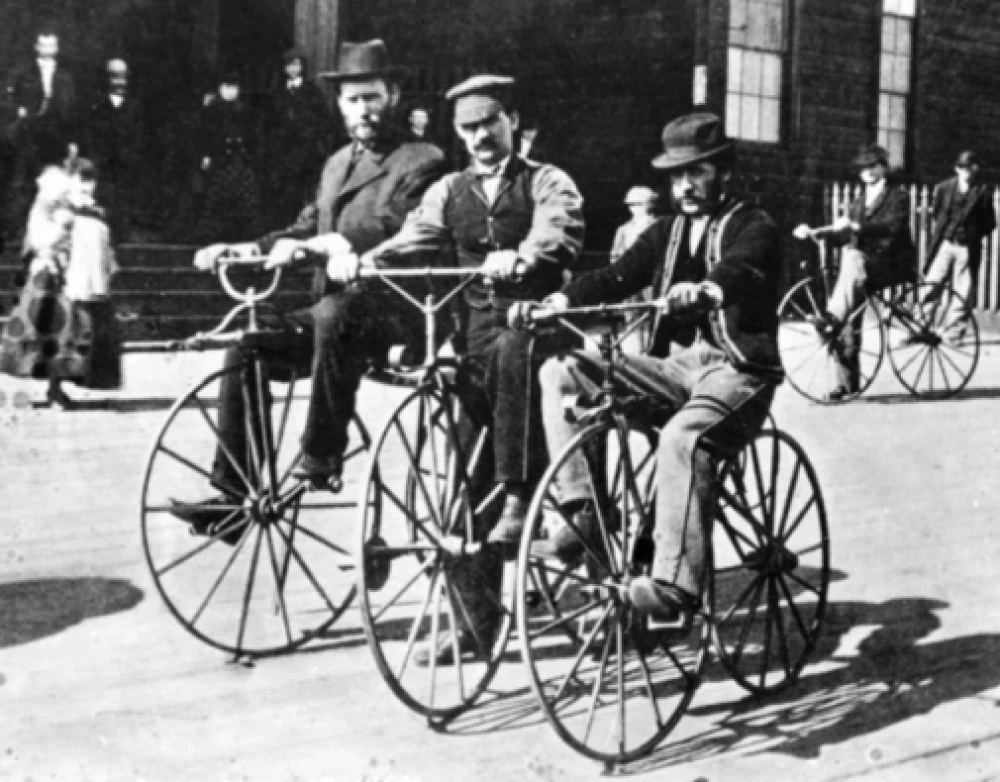
08/04/2024
1715
Pedaling Through Time: A Comprehensive Journey into the History of Cycling
Cycling, with its blend of simplicity, efficiency, and versatility, has captured the hearts and minds of people worldwide for centuries. From its humble beginnings as a mode of transportation to its evolution into a beloved sport and recreational activity, the history of cycling is as rich and diverse as the landscapes it traverses. Let's embark on a fascinating journey through time to explore the evolution of cycling and its profound impact on society. While the modern bicycle as we know it today didn't emerge until the 19th century, the concept of human-powered transportation dates back thousands of years. Early civilizations, including the ancient Greeks and Romans, devised rudimentary wheeled contraptions propelled by human effort. These early precursors laid the foundation for the development of more sophisticated forms of transportation in the centuries to come.
The 19th century witnessed the birth of the modern bicycle with the invention of the velocipede, also known as the "boneshaker." Patented by Frenchman Pierre Michaux in 1861, the velocipede featured a wooden frame, iron tires, and pedals attached directly to the front wheel. Despite its rough ride, the velocipede captured the public's imagination and sparked a craze for cycling across Europe and North America.
In the 1870s, the iconic penny-farthing, characterized by its large front wheel and smaller rear wheel, became the next major innovation in cycling. While these bicycles offered greater speed and efficiency than the velocipede, they also posed significant safety risks due to their high center of gravity. Nonetheless, they remained popular among enthusiasts and paved the way for further advancements in bicycle design.
The late 19th century saw the introduction of the safety bicycle, a revolutionary design featuring two wheels of equal size, a chain drive system, and pneumatic tires. Patented by Englishman John Kemp Starley in 1885, the safety bicycle offered a more stable and comfortable riding experience, making cycling accessible to a broader segment of the population. This innovation marked a turning point in the history of cycling, fueling its widespread adoption as a mode of transportation and recreation. The late 19th and early 20th centuries witnessed the golden age of cycling, as bicycles became increasingly affordable and accessible to people of all social classes. Cycling clubs and associations proliferated, organizing races, tours, and social rides that brought communities together and fostered a sense of camaraderie among enthusiasts. Bicycles also played a crucial role in the women's rights movement, providing women with newfound freedom and independence. As cycling grew in popularity, competitive racing emerged as a thrilling spectacle that captivated audiences around the world. The first modern bicycle race took place in 1868 in France, and the sport continued to evolve with the establishment of prestigious events such as the Tour de France, Giro d'Italia, and Vuelta a España. These grueling races tested the endurance and skill of cyclists and elevated the sport to new heights of athleticism and excitement.
In the 20th and 21st centuries, cycling has continued to evolve, with advancements in technology, materials, and design leading to lighter, faster, and more efficient bicycles. From the development of mountain bikes and BMX bikes to the rise of electric-assist bicycles and innovative commuting solutions, cycling has adapted to meet the changing needs and preferences of riders in an ever-evolving world.
The history of cycling is a testament to the ingenuity, passion, and resilience of humanity. From its humble beginnings as a mode of transportation to its status as a beloved sport and recreational activity, cycling has transcended time and geography to become a cherished aspect of global culture. As we pedal forward into the future, let us celebrate the enduring legacy of cycling and the boundless possibilities it holds for generations to come.
Shanazar OWLYAGULYYEV,
the 1st year student of the Faculty of International Economic Relations of the
Institute of International Relations of the
Ministry of Foreign Affairs of Turkmenistan.


